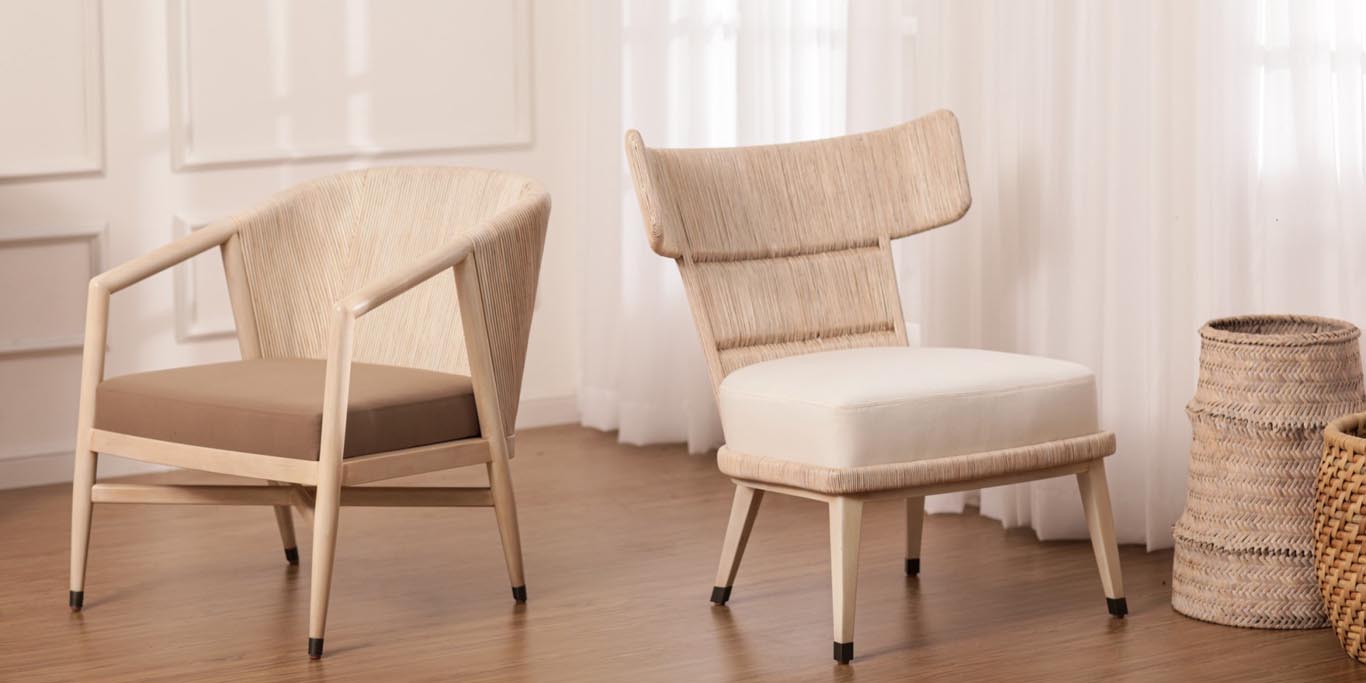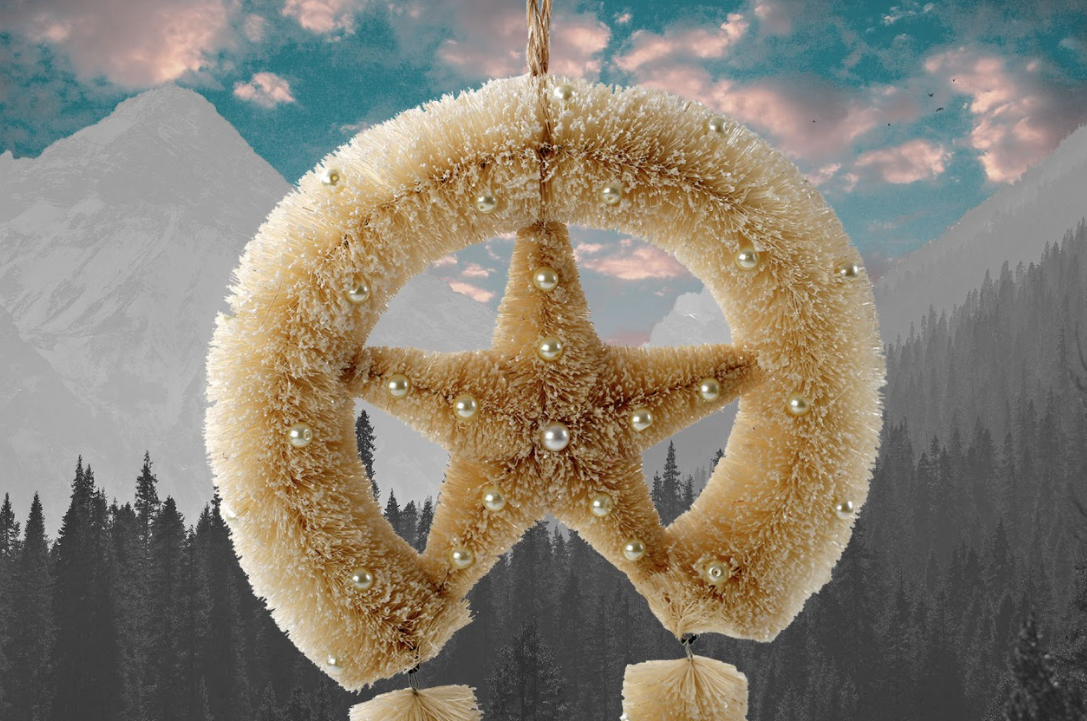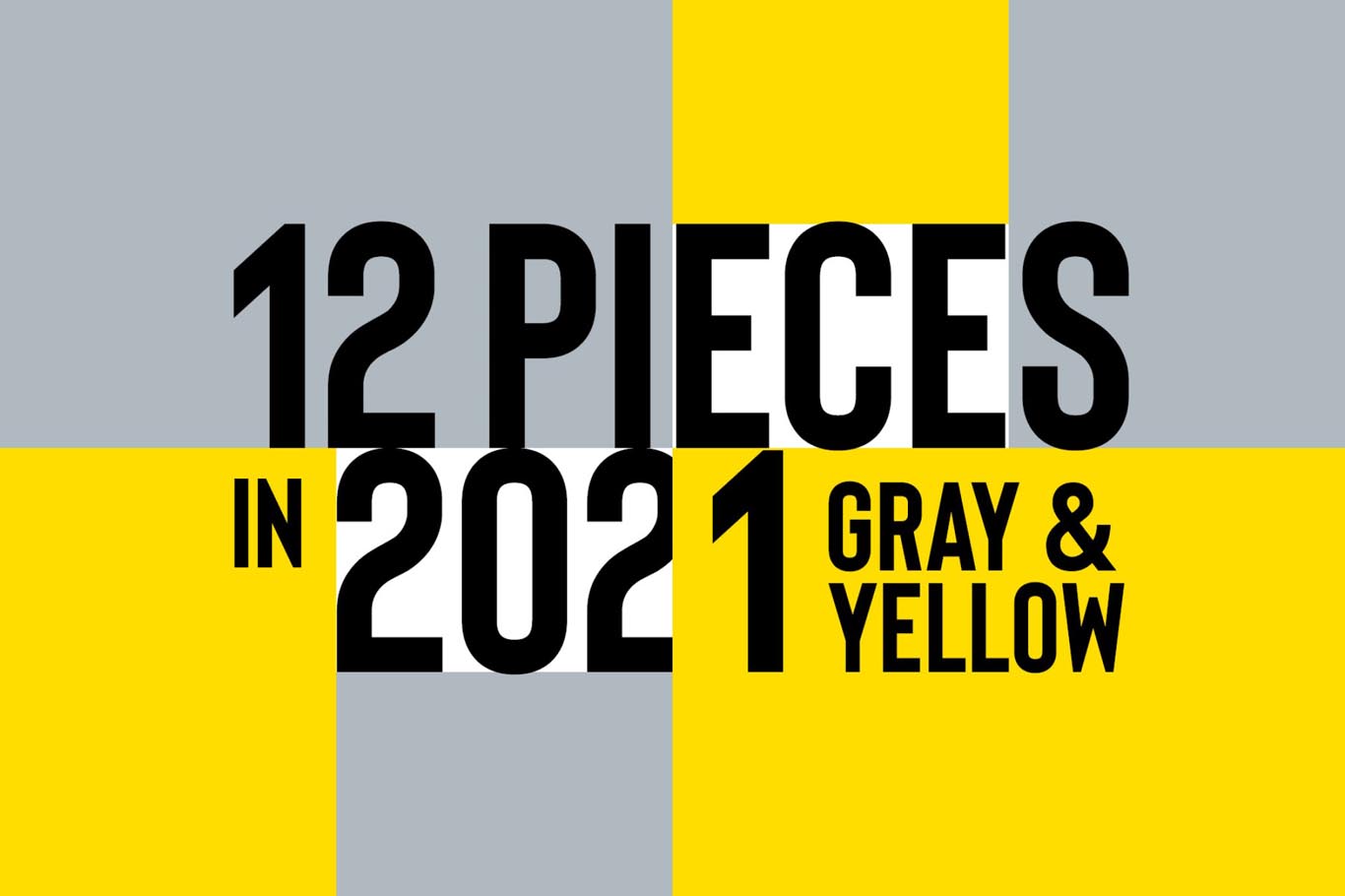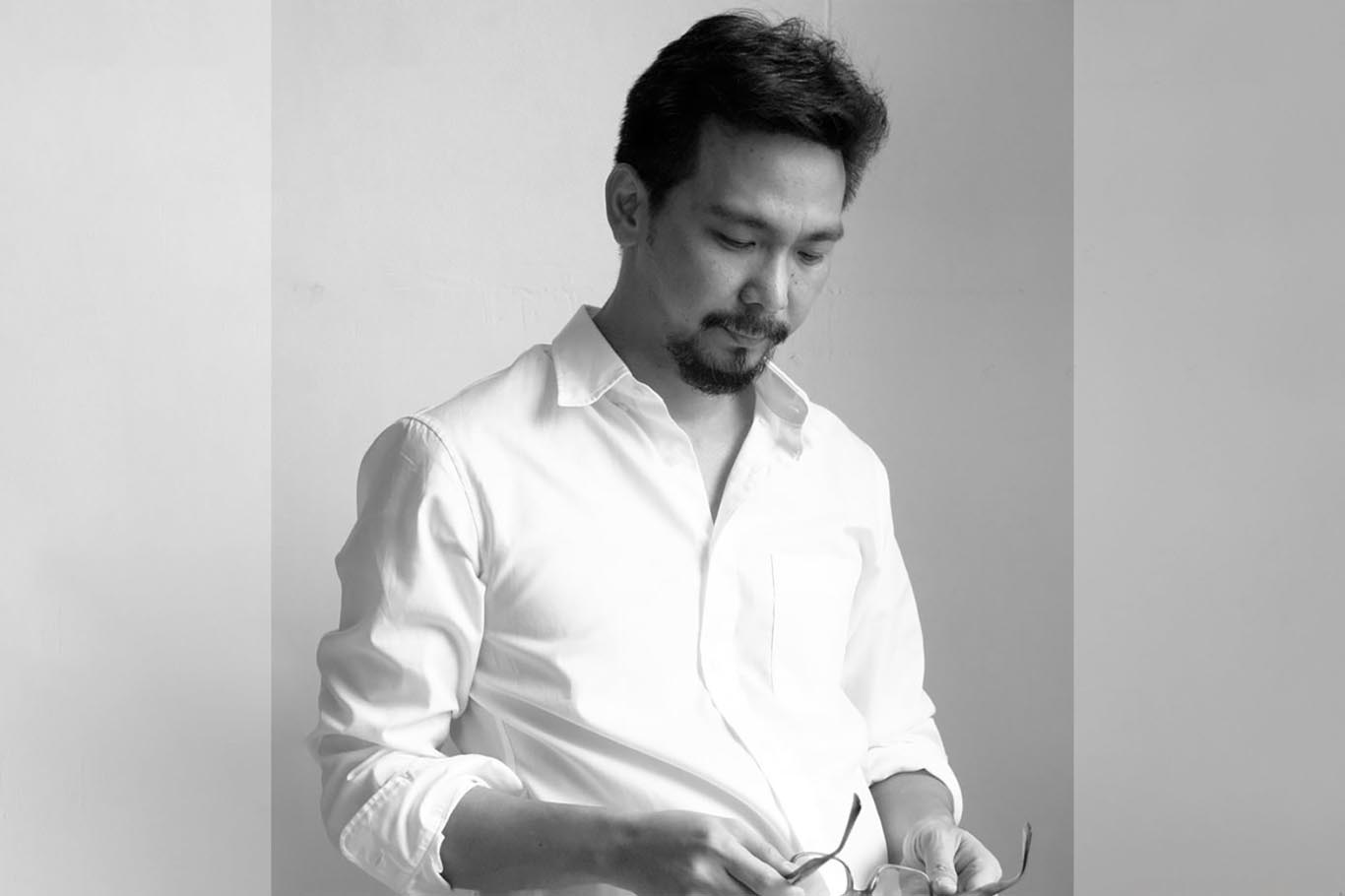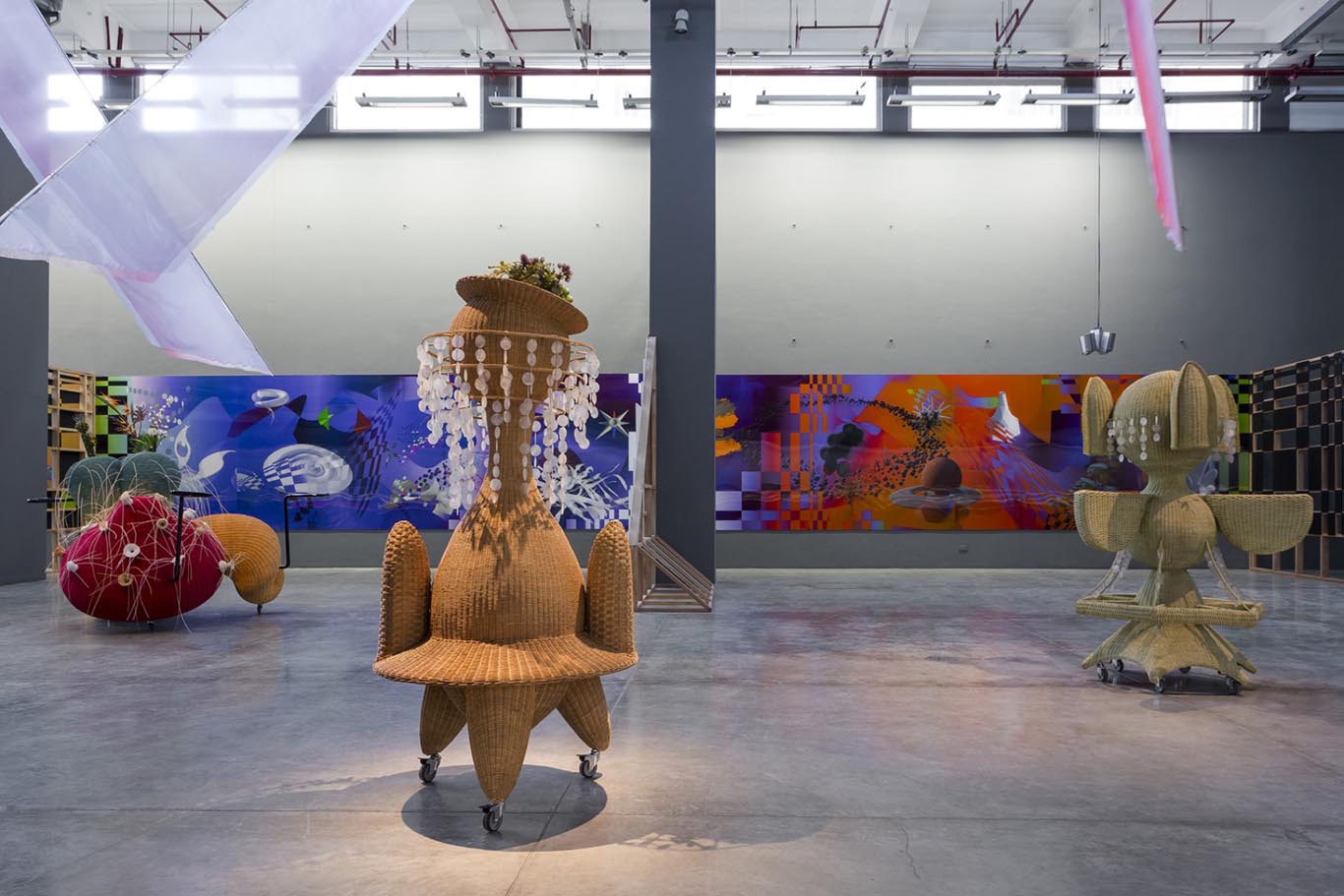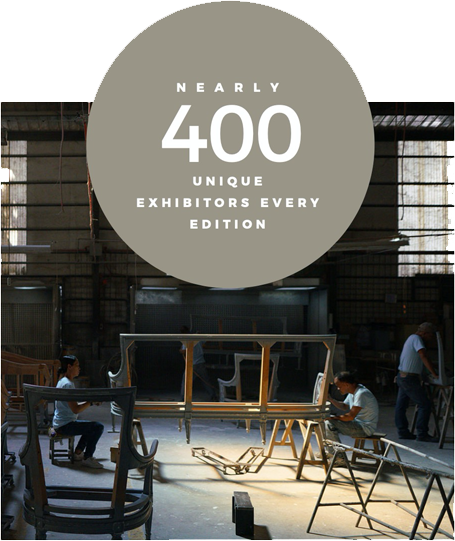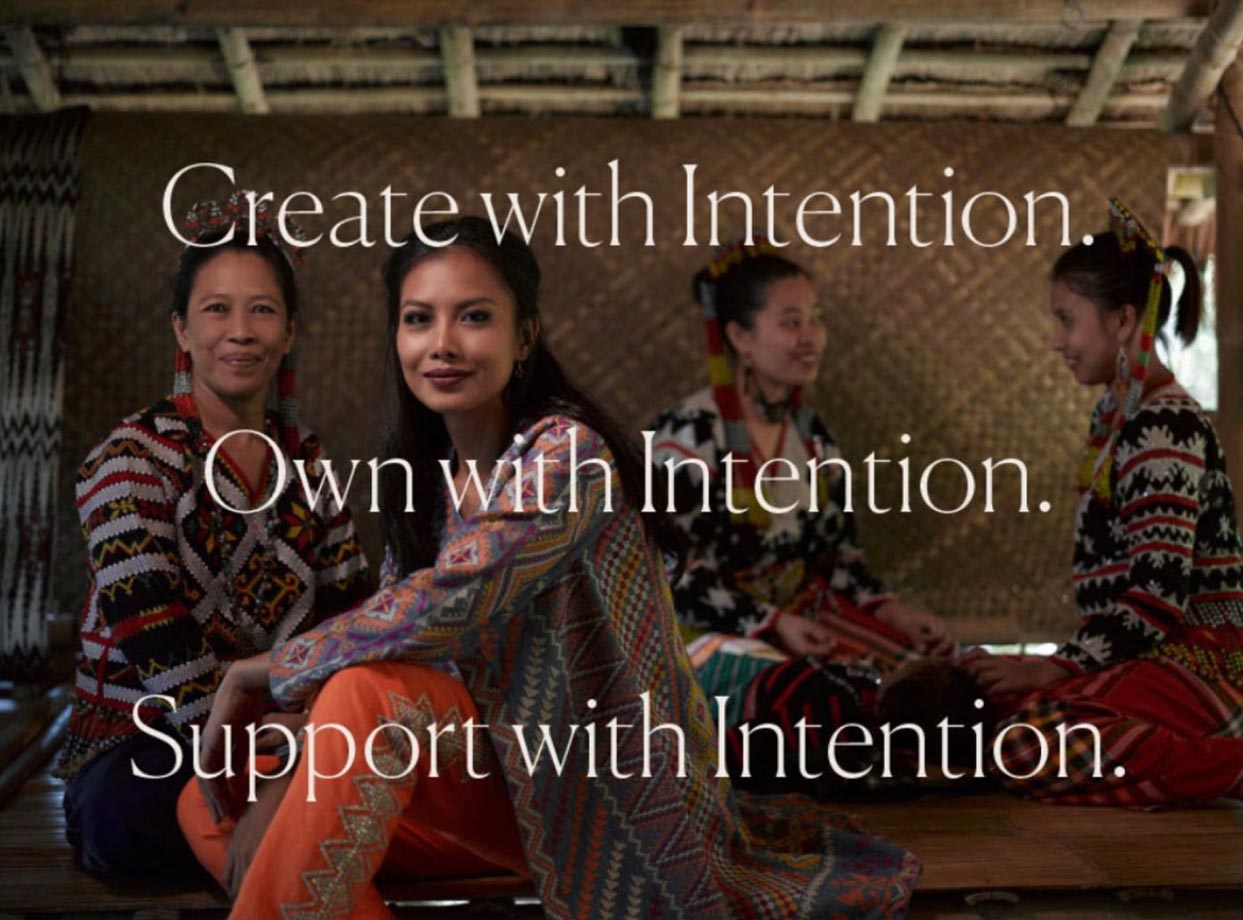
Fashion Brands That Make a Difference
Fashion often gets a bad rap for being excessive and frivolous. But on the flipside, it can be inspiring, empowering, and even an agent for change.
Over the past decade, we've witnessed how homegrown Filipino brands are shaping the local landscape. But just as love for local was reaching an all-time high, the pandemic struck, posing fresh challenges. Here, we chat with three fashion visionaries on the struggles and rewards of running a brand with purpose—especially in the tumultuous year that is 2020.
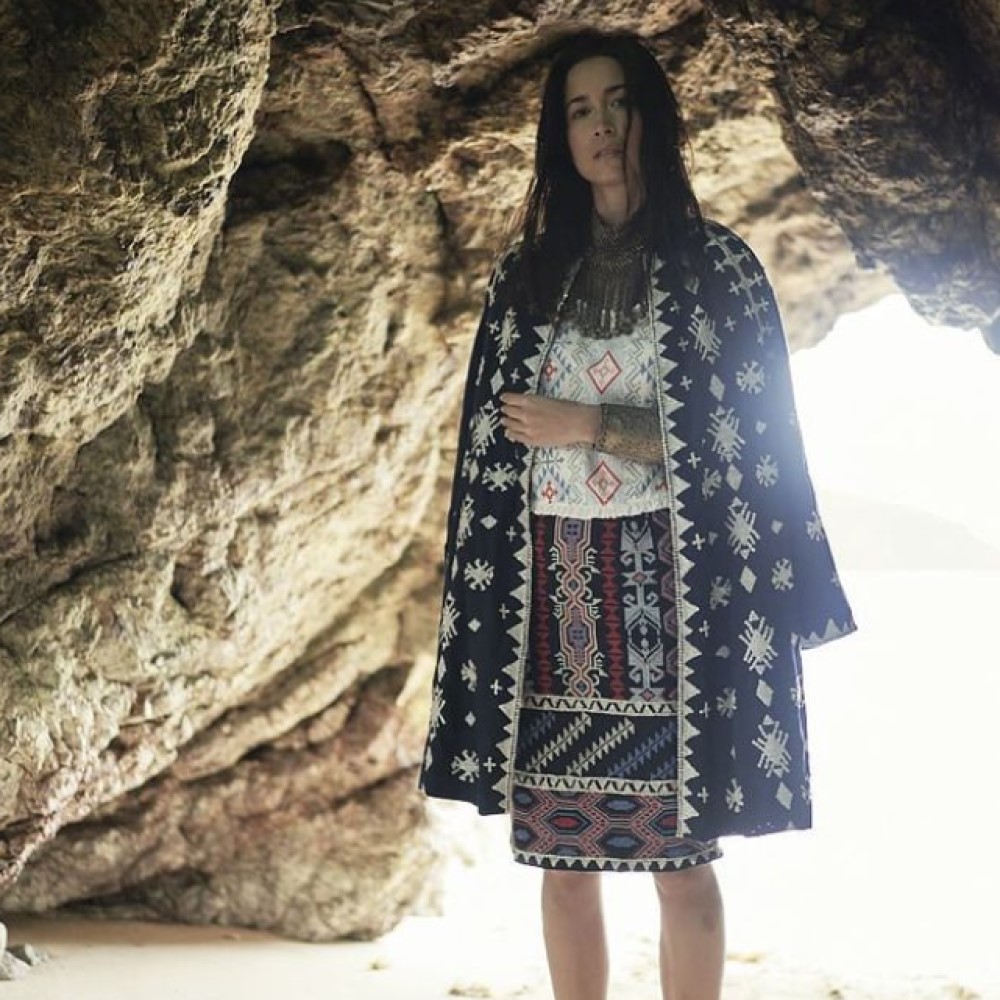
Filip+Inna is one brand that not only works with, but champions the Filipino communities who create their fashion pieces. Photo by Paco Guerrero, styled by Luis Espiritu.
Preserving Heritage and Culture
Working with indigenous communities is not a novel idea, but just about a decade ago, only a few dared to build a retail fashion brand on this vision.
“Inspired by tradition, Filip+Inna is a brand that points back to the Philippines and its rich culture with traditions in weaving, embroidery and beadwork,” shares Filip+Inna founder Lenora “Len” Cabili. With roots in Mindanao, she grew up with a reverence for our artisanal crafts, and one day recognized her calling to champion it through modern-day fashion.
“In 2009 to 2010, it was the foreign brands that were dominating the market. Since I could not find a market for Filip+Inna locally, I was forced to work around that problem and found the answer abroad four months after I received our initial samples. It was a prayer answered. After sending a cold email to the founder of Indagare in New York, I got an invitation to join the trunkshow in Southampton, NY. There I found a clientele that appreciated the work of the hands of the artisans.”
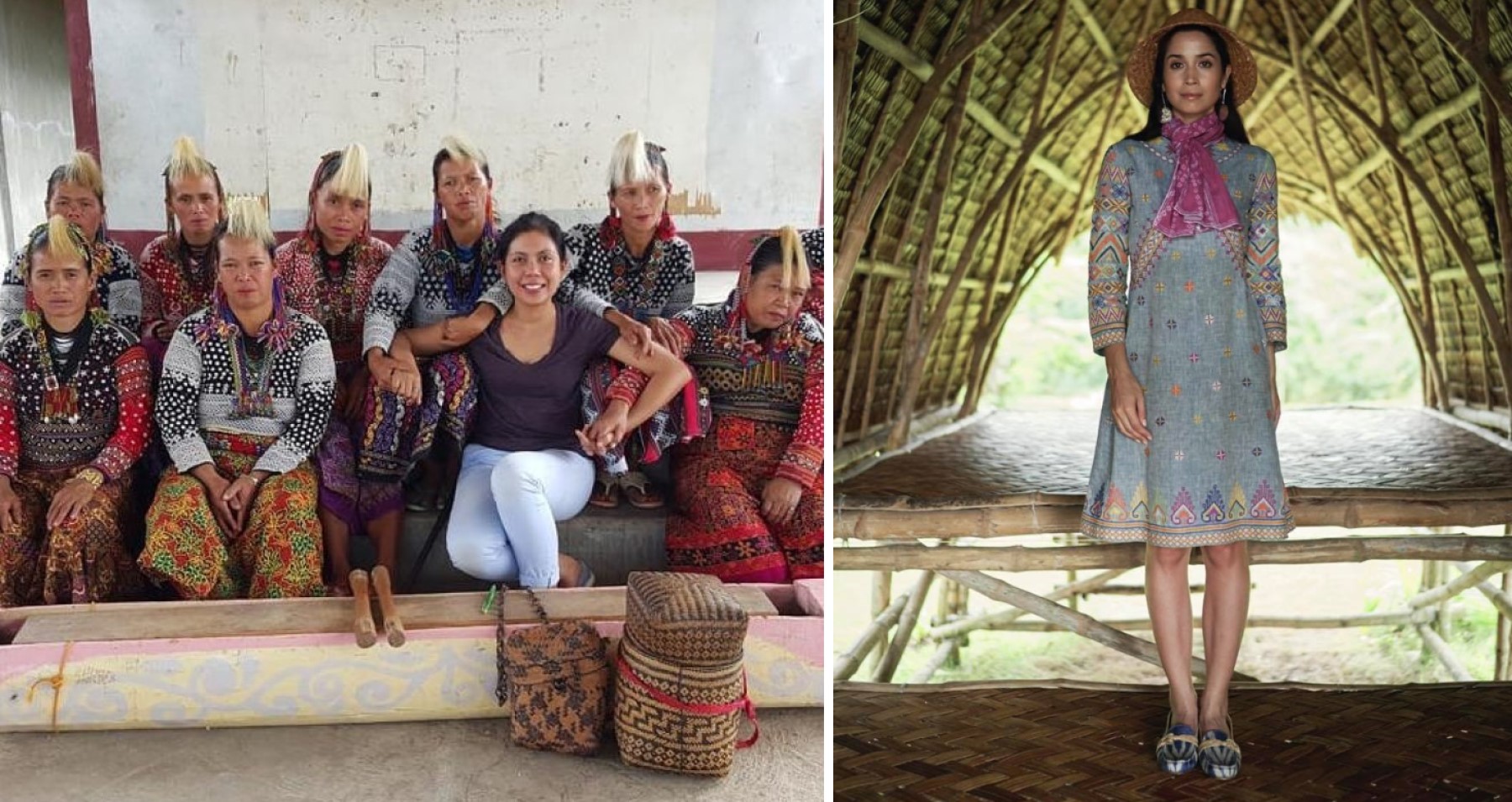
“At the moment, we work with around 26 cultural and traditional communities around the Philippines,” says Cabili about the artisans who work on Filip+Inna. Photo at left by Paco Guerrero.
It wasn't long before news of the brand's international success piqued local interest as well, and Filip+Inna's celebration of our culture in exquisite, contemporary pieces served as a major catalyst in the love-for-local fashion phenomenon.
Asked about the communities Filip+Inna has been able to help, Cabili shares, “Oops, I do not like the word help—I would like to say that we work together. Our brand name exemplifies that there are two parties that are drawn together toward a common purpose. As we create, we believe in working together in a balanced interaction. The Artisan + The Design Team. The Brand + The Client. They are complementary. No one is more powerful than the other. The duality is held together by honoring Philippine culture.”
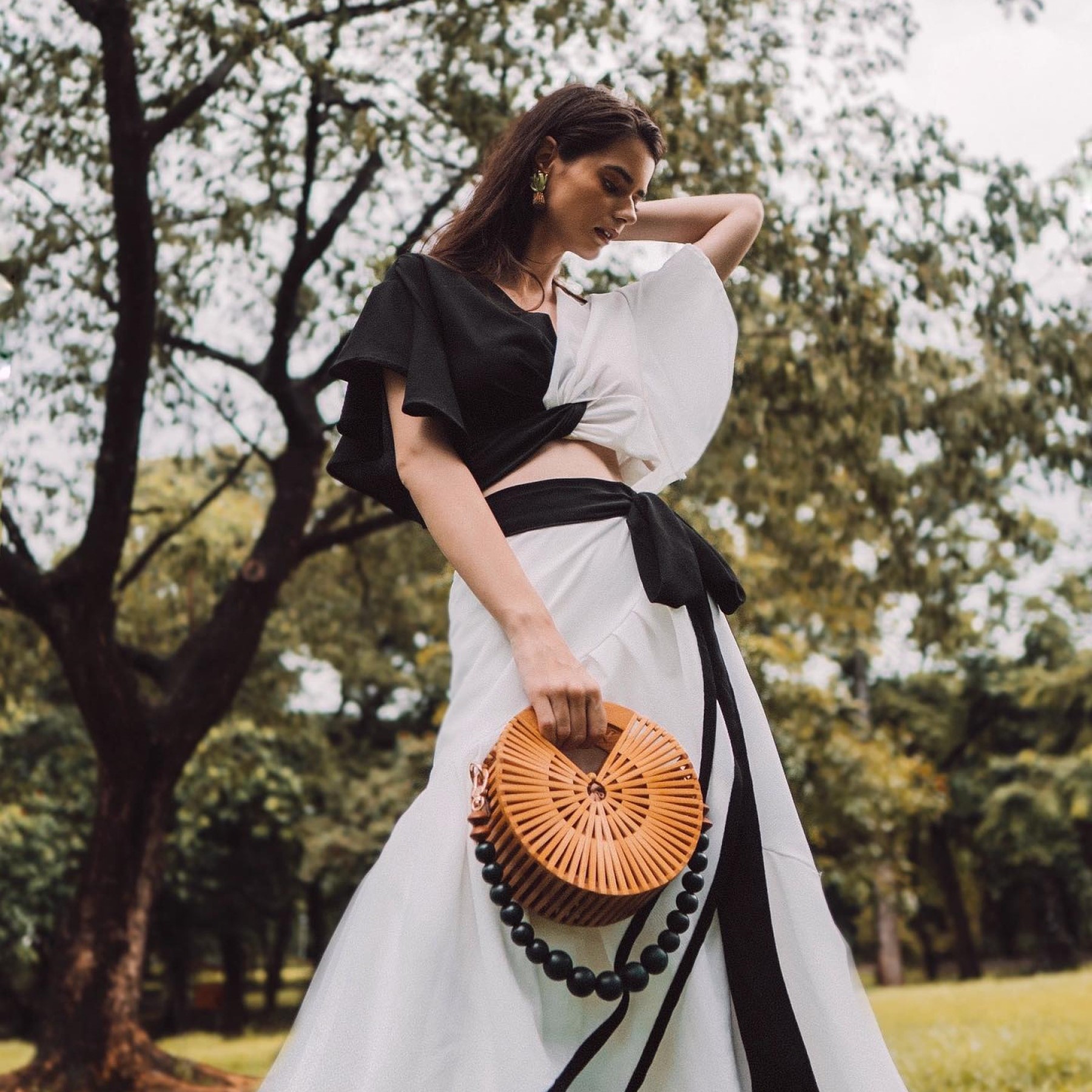
Winona set and Siena bag from Style Cat, which sells not only locally, but in Singapore, Thailand, and Indonesia. These international sales have helped them throughout the pandemic.
Style and Social Relevance
These days, young entrepreneurs now often consider the social enterprise aspect when setting up their business.
When style-blogger-turned-entrepreneur Yuki Higson launched her trendy and accessible brand Style Cat in 2017, she had a clear goal: to uplift Filipino communities by working with them to create fun, fashionable, and lovingly handcrafted pieces. “We are all about fashion with integrity. To focus on the planet alone isn’t enough anymore—we need to know the source of the products so we can be mindful of the environmental and societal impact of our business.”
Style Cat currently works with weavers from provinces such as Bicol and Abra, moms who work from home in Bulacan, as well as Persons Deprived of Liberty (PDLs) from Manila and Quezon City Jail.
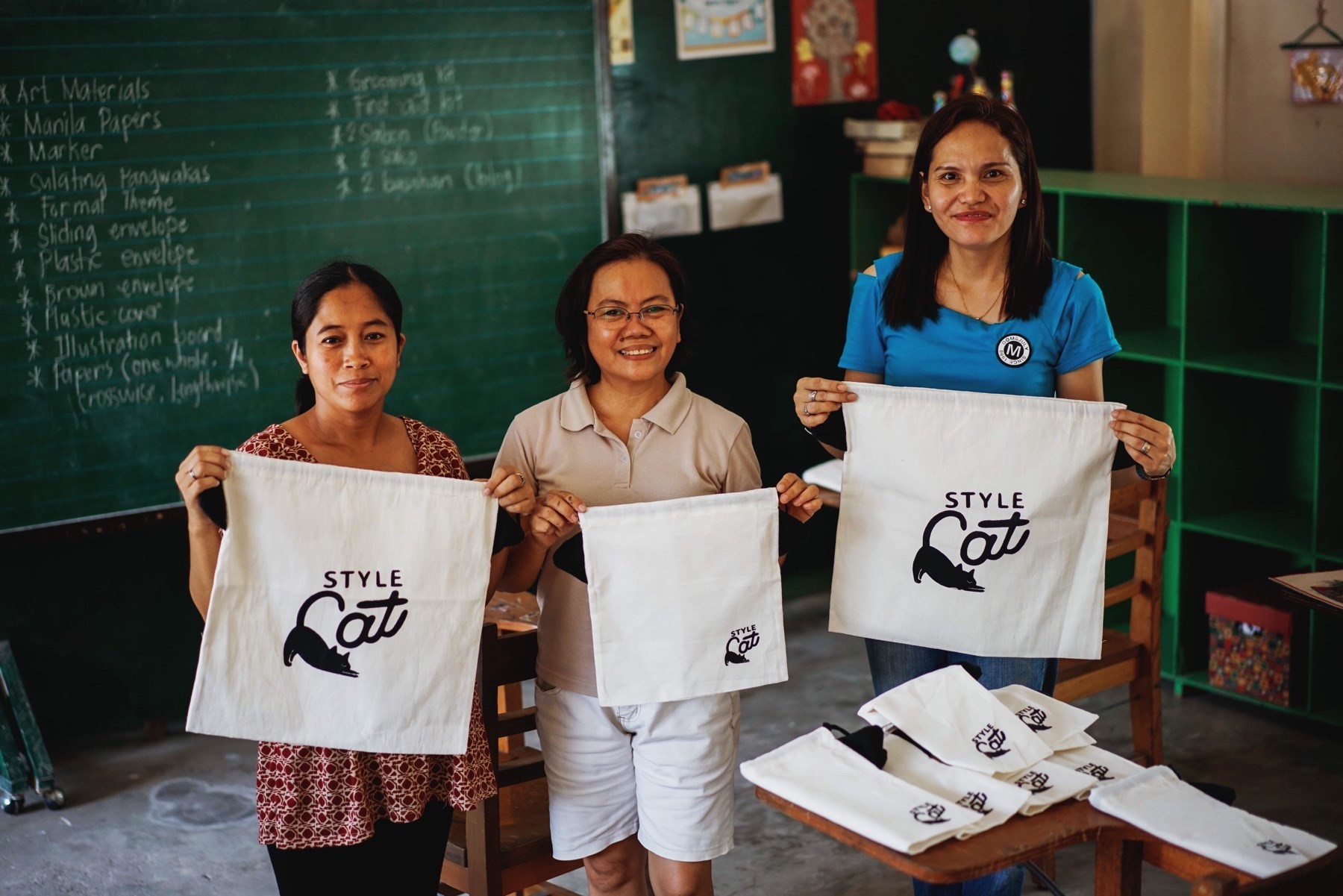
Style Cat employs women from different communities, such as the teachers from Pandi, Bulacan, who make their dust bags. “Style Cat is blessed to be working with a very hardworking team and creative artists. We hope to survive and thrive and hopefully be able to provide more livelihood to our communities,” Higson shares.
“The most rewarding part of running Style Cat is seeing the priceless reactions of our artisans and PDLs when they see their products displayed in stores outside the Philippines, or when they see it photographed nicely—they're in awe that it's actually something they made with their own hands. It is our responsibility to find ways to give back to the community or better yet, empower them and take them with you as part of the supply chain.”
A skillful strategist, Higson knew that joining Manila FAME would bring her brand to the next level on the world stage. “Pre-pandemic, DTI invited Style Cat to take part in the Philippine Festival held in Tokyo, Japan. It was such a great experience and I wish more brands grab the opportunities DTI offer to MSMEs.”
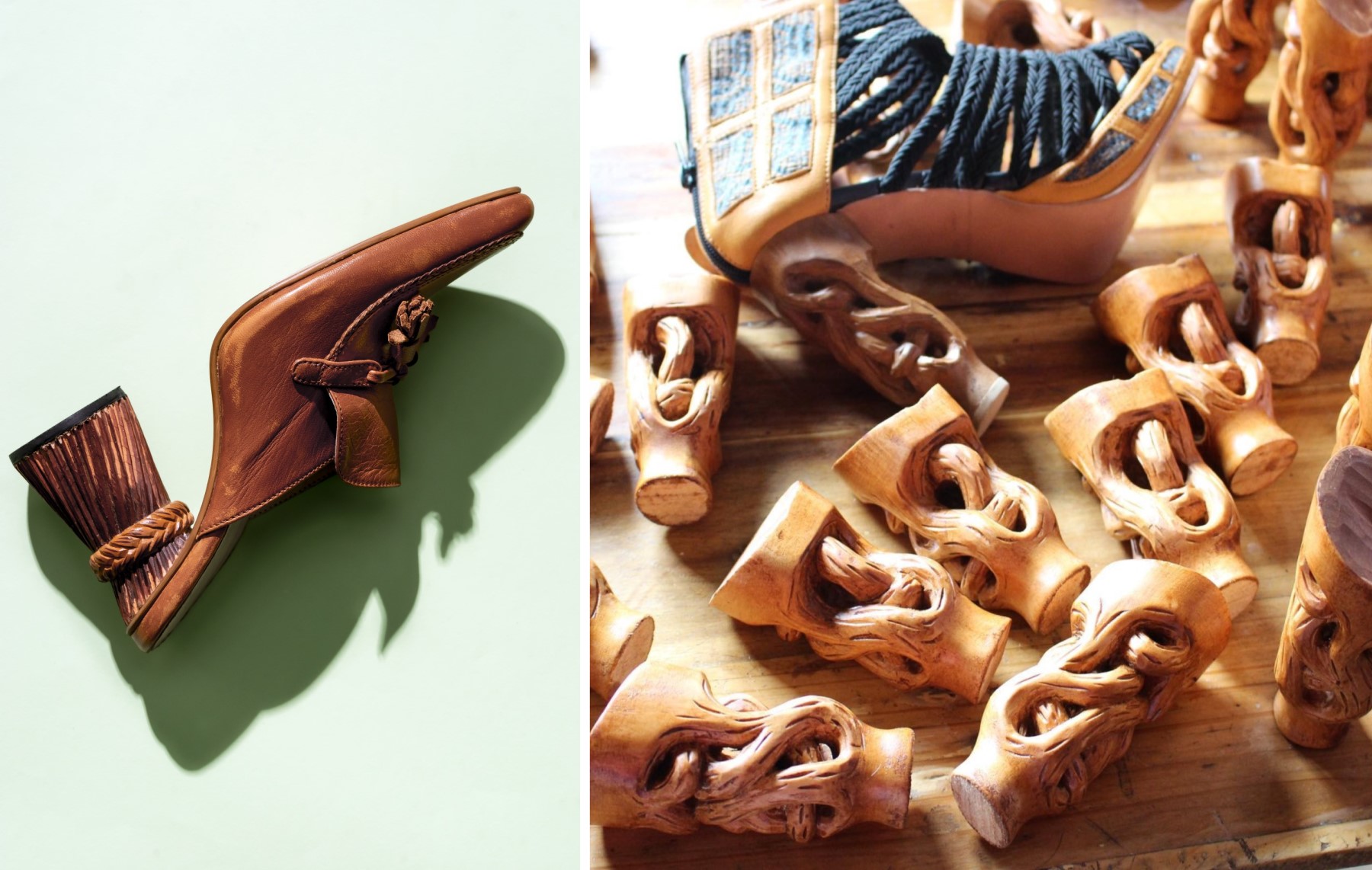
Risque Designs highlights the not only the shoe-making skills of Marikina, but also the craftsmanship of many other provinces. The wooden heel of the Solidarity Mule (left) was handcarved in Paete, Laguna (right).
A Step Towards Community-Building
Meanwhile, Tal de Guzman's handcrafted footwear brand Risque Designs is known for showcasing the work of Marikina artisans, the woodcarvers of Paete, and handloomed textiles from different regions across the Philippines. And as a Marikina-based brand bearing witness to the decline of the city's once-illustrious shoemaking industry, de Guzman was inspired to create Stride Collective, a collective of ethical and handmade independent shoe brands.
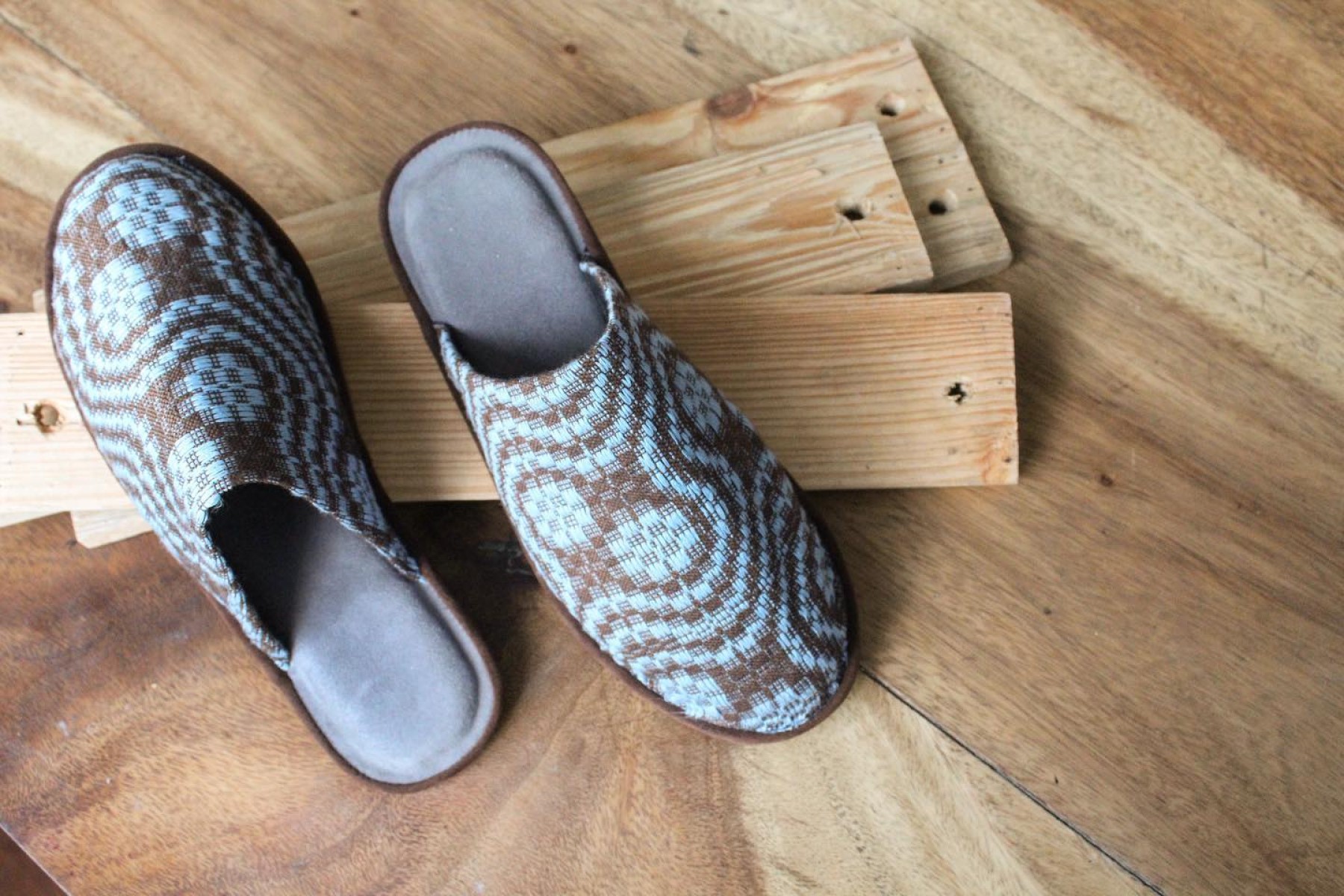
Buhinon slip-ons by Risque shows the brand’s line of lounging footwear for WFH style.
“We wanted to build a community that shares resources and knowledge. In a very competitive industry, we wanted to be different in a sense that our brands are not competitive of each other, but rather, supportive,” shares de Guzman, who is co-founder of Stride Collective. In 2019, Stride Collective proudly opened the doors to their brick-and-mortar store. More than simply being a physical hub for over 20 brands in their collective, they hoped it would help revitalize Marikina as a shoe-shopping destination.
Pivot and Purpose
With a growing clamor for local, 2020 kicked off with so much promise. And then COVID-19 hit, crippling industries across the board, especially those deemed non-essential.
“Locally, Style Cat had product launches in the pipeline, but of course when the pandemic hit, it didn't feel right to launch this as people prioritized essentials as the times got more difficult. We are grateful to be stocked in other countries, so the sales from those other stockists definitely helped keep us afloat,” shares Higson.
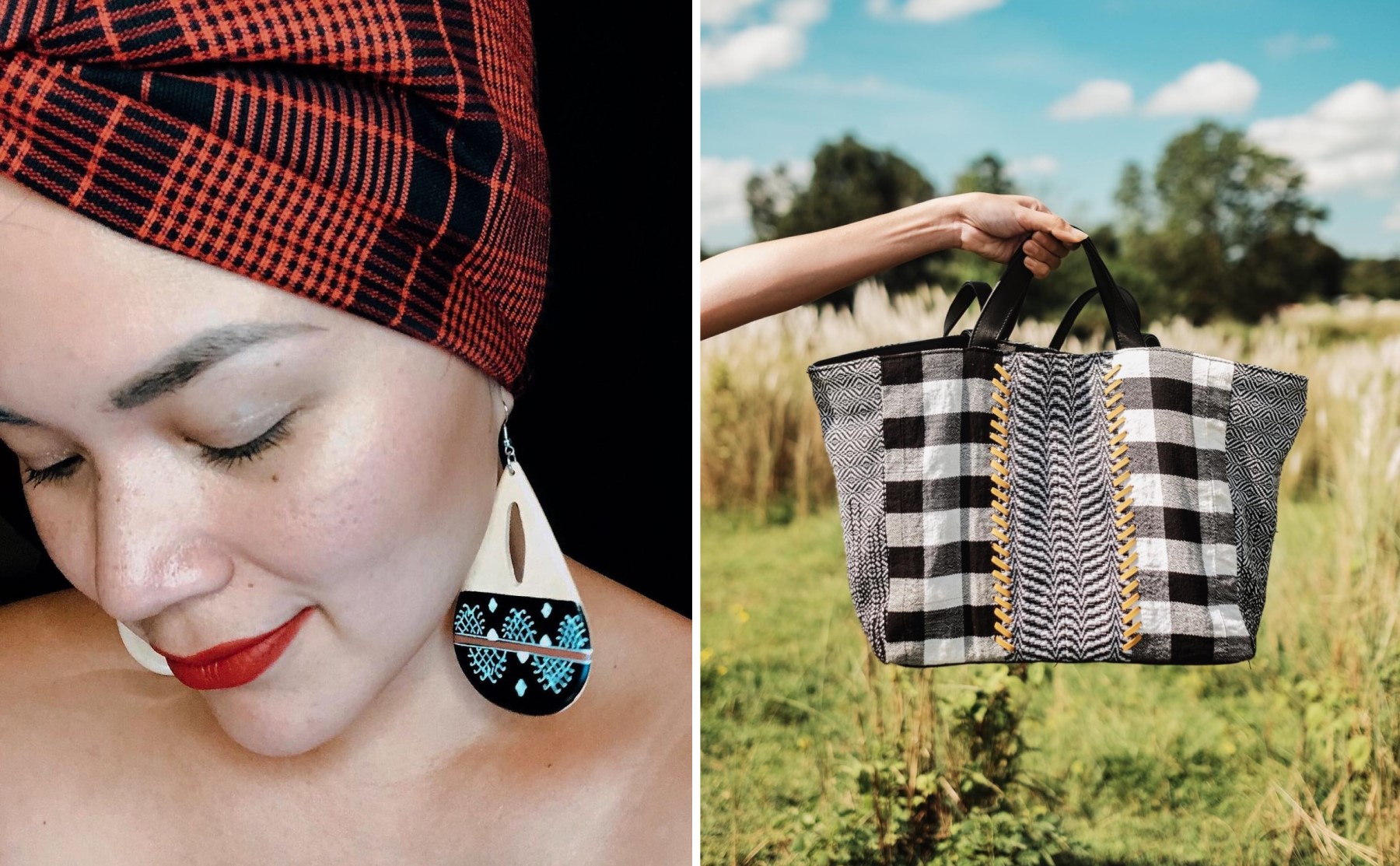
In response to the crisis, Style Cat started selling ear-savers for masks, mask scarves, and Zoom-friendly accessories such as headwraps and statement earrings, such as the Bolinao headwrap (left) which pairs well with the Arayat bag (right).
“It's been a very tough time for everyone, especially now; our Bicol weavers are immensely affected not just by the pandemic, but by Typhoons Rolly and Ulysses. Fashion has taken a backseat but we are still hopeful to bounce back and take it one day at a time.” Fortunately, they still have corporate commissions, allowing them to continue providing work for PDLs.
“To pivot, we recently put up The Sewing Room by Style Cat, which gives livelihood to displaced sewers during the pandemic. We are helping start-up shops produce the brand of their dreams by assisting in the clothing manufacturing and custom-made orders.”
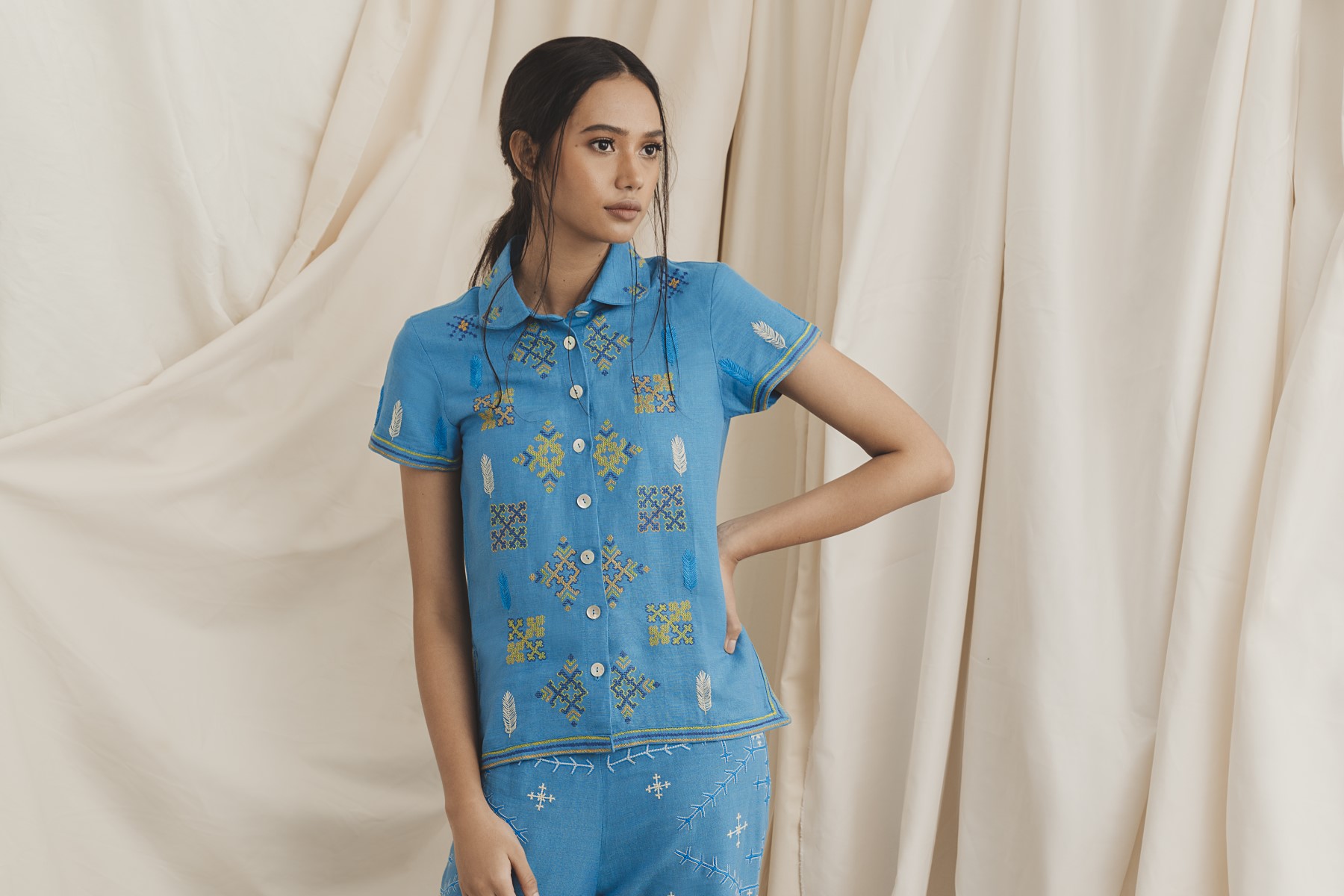
Hangtags on her pieces helpfully identify the indigenous weaves or artisanal traditions and their provenance, every Filip+Inna piece equivalent to wearing a part of our culture. They were one of the seven brands that participated in the Premiere Classe fashion and accessories trade fair in Paris.
Sustainable Systems
Having weathered many storms and now headed into its 13th year, Cabili shares what's been helping Filip + Inna power through.
“Our business structure is composed of three areas: design studio, workshop, and the artisans. The artisans work from home so they were not affected, the workshop ladies live around the area so they walk to work, while the designers work in the studio. Having clusters instead of one main work space is a sustainable way for us and during this time of the pandemic, it has worked to our advantage.”
Filip+Inna may have had to forego international trunk shows this year, but instead, they've had the opportunity to recalibrate their business model and launch three new platforms that they will be focusing on, moving forward. “We hope this will help us survive the hard times ahead as well as create an intentional way of designing, creating, producing, and selling. We launched our online store, built up our made to order service, and introduced F+I, a Client Partnership Program.”
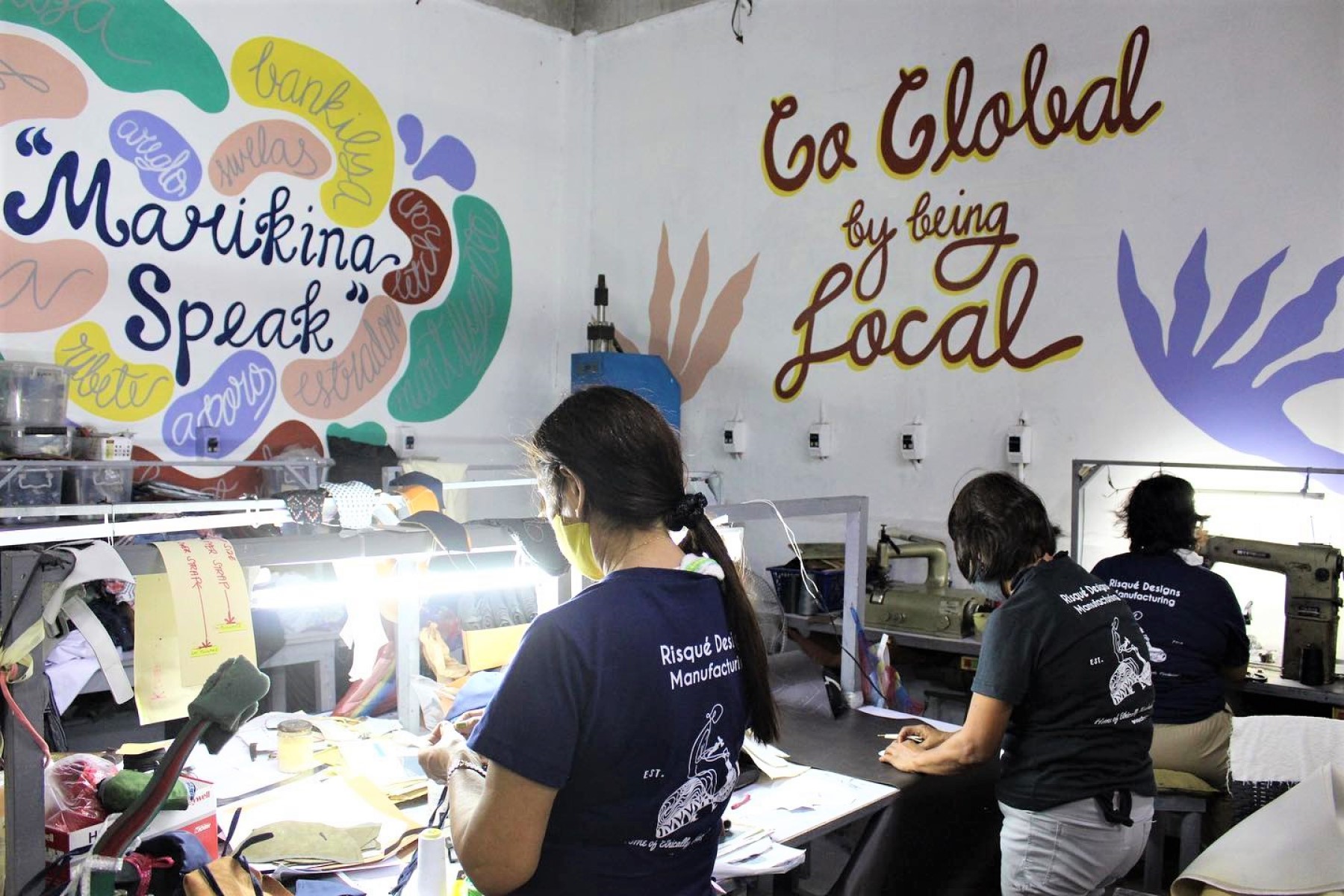
The shoe-making community of Marikina was one of the worst-hit by the recent 2020 typhoons. Stride Collective organized a fund drive to help out not only their team, but other makers in the area.
Getting Back on Their Feet
It's been especially tough for the footwear industry, with even the big established brands shutting down as department stores weren't putting in orders for school shoes, their bread-and-butter. “The smaller brands are actually surviving because we produce specialty shoes,” de Guzman revealed early into the pandemic. And yet, several months later, Stride Collective found themselves shuttering their physical store. Fortunately, they remain available online, and their presence in Manila FAME helps connect them to buyers around the globe.
But the most devastating blow was yet to come: in November 2020, Typhoon Ulysses wreaked havoc upon the shoe-making capital of Marikina, flooding entire homes and factories, severely threatening their lives as well as livelihood. Stride Collective was quick to organize a fund drive for emergency aid and relief efforts in the area, not only for their own team, but for many others in the shoe- and bag-making community.
“As for recovery: going around during relief operations made me realize just how much damage the industry has taken—machines ruined in the flood; inventory already scheduled for delivery being completely wiped out; and even cleaning up the muck and mud takes weeks,” de Guzman laments.
“We don't know how long recovery will take, or even if some will recover at all. But now is when support of local products really would help. And hopefully, support from the government and other organizations, too.”
Support Local
The question is, are people still shopping for fashion? The answer is yes; but with a heightened sense of mindful consumption. People are now gravitating toward pieces that tell a story—whether it showcases beautiful local design or craftsmanship, celebrates our heritage, helps uplift a community or protect the environment. Ultimately, uplifting the local economy.
In an effort to take a more pro-active role in protecting and promoting artisanal traditions, Cabili is part of the Philippine Fashion Coalition and belongs to the Textile, Academe and Crafts [TAC] Sector. “Our mission for the TAC sector is pursuing culture as soft power for the Philippines. We are looking into contributing to the revival of the textile industry and pursuing sustainable textiles through the private sector and the government agencies like PhilFida and PTRI. We are pushing for and helping lay the ground work to create a sustainable fashion industry here in the Philippines.”
We're ready.
Words: Pierra Calasanz-Labrador; images courtesy of the brands; header image from Filip+Inna; Risque Solidarity Mule photo by Toto Labrador


